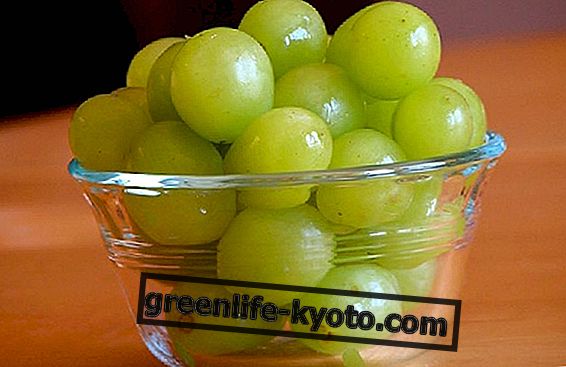Siberian blueberry is a fruit similar to honeysuckle, rich in vitamins. From the strong antioxidant power, given by the richness of anthocyanins, it helps the immune system, the skin and the skeleton. Let's find out better.
>

Description of the fruit
It is called "Siberian blueberry" but the name often misleads : while the proper blueberry is an ericacea of the genus Vaccinum, the so-called Siberian blueberry is a caprifoliacea of the genus Lonicera, therefore we speak of the berries of a honeysuckle .
This kind of plant is typical of northern countries : North America, Siberia, Northern Europe; the Siberian blueberry, specifically, would come from the territories of Kamchatka. It is a shrub that produces berries similar to the blueberry, but oblong and cylindrical in shape, with a sort of cavity in the lower part. They have the same blue color as blueberry covered with bloom.
In recent years this fruit has risen to prominence in the Russian, American and Japanese markets, where it has been promoted as a food of well-being, and sold both fresh and in the form of juices and jams. Also the taste resembles that of the sweeter blueberry and kiwi, but it can remember the aromaticity of raspberry and rhubarb.
Siberian blueberry, ally of
Immune system, skin and cells in general, skeleton.
Calories, nutritional composition and properties of the Siberian blueberry
Siberian blueberry contains about 40 kcal per 100 g.
The berries are consumed mainly due to their high content of vitamin C, vitamin D and the B vitamins. It is a food with a remarkable antioxidant power, given by the richness of anthocyanins. It also contains a wide range of trace elements, among which potassium, calcium, phosphorus and magnesium stand out.
In the countries where it is consumed most, its anti-aging, cellular protection, immune system and cancer preventive properties are extolled. The fruits also contain phenols with interesting properties: chlorogenic acid, neo-chlorogenic acid, other compounds derived from caffeic acid and different types of quercetins.
You can learn more about how to combat aging with nutrition

Contraindications of Siberian blueberry
No particular contraindication is associated with Siberian blueberry consumption. The seeds of the fruit are so small that they do not give any trouble and do not involve any risk, as is the case with tomatoes, for example.
Curiosity
- In recent years, American, Canadian, Russian and Japanese scientists and botanists have created numerous hybrids between species of the genus Lonicera in order to create plants with more good and numerous fruits.
- It is present in the natural state almost everywhere in the circumpolar area, with the exception of Norway, Alaska and New Columbia.
How to eat Siberian blueberry
Generally on the market there are products based on Siberian blueberry : ice cream, frozen pulp, dried berries, snacks and desserts in general, juices, concentrates, jams, jellies, etc. However, on the market it is also possible to find fresh Siberian blueberry berries, or alternatively it is also possible to grow them at home, as many nurseries propose it as a garden plant due to its rusticity; in this case it is good to know that the berry must have a beautiful dark color and the pulp inside must not be greenish (sign of a not complete maturation ) but purplish red. Berries at a level of maturation now too advanced are easily recognizable by the bitter taste reminiscent of tonic water.
In collaboration with Giacomo Colomba













